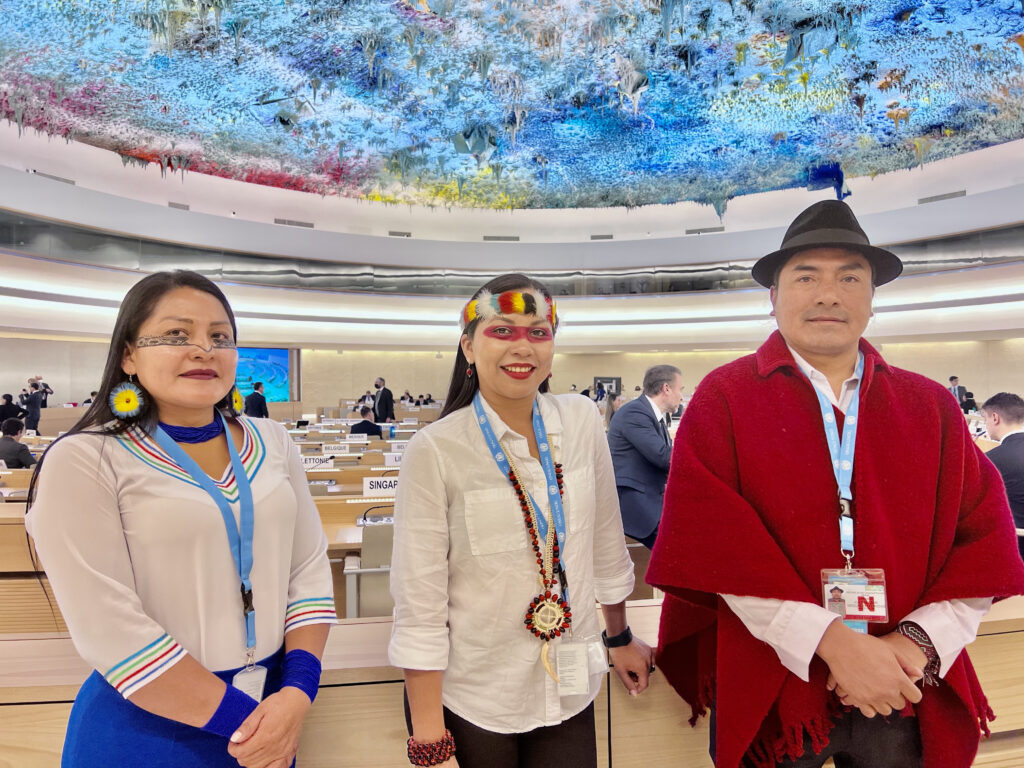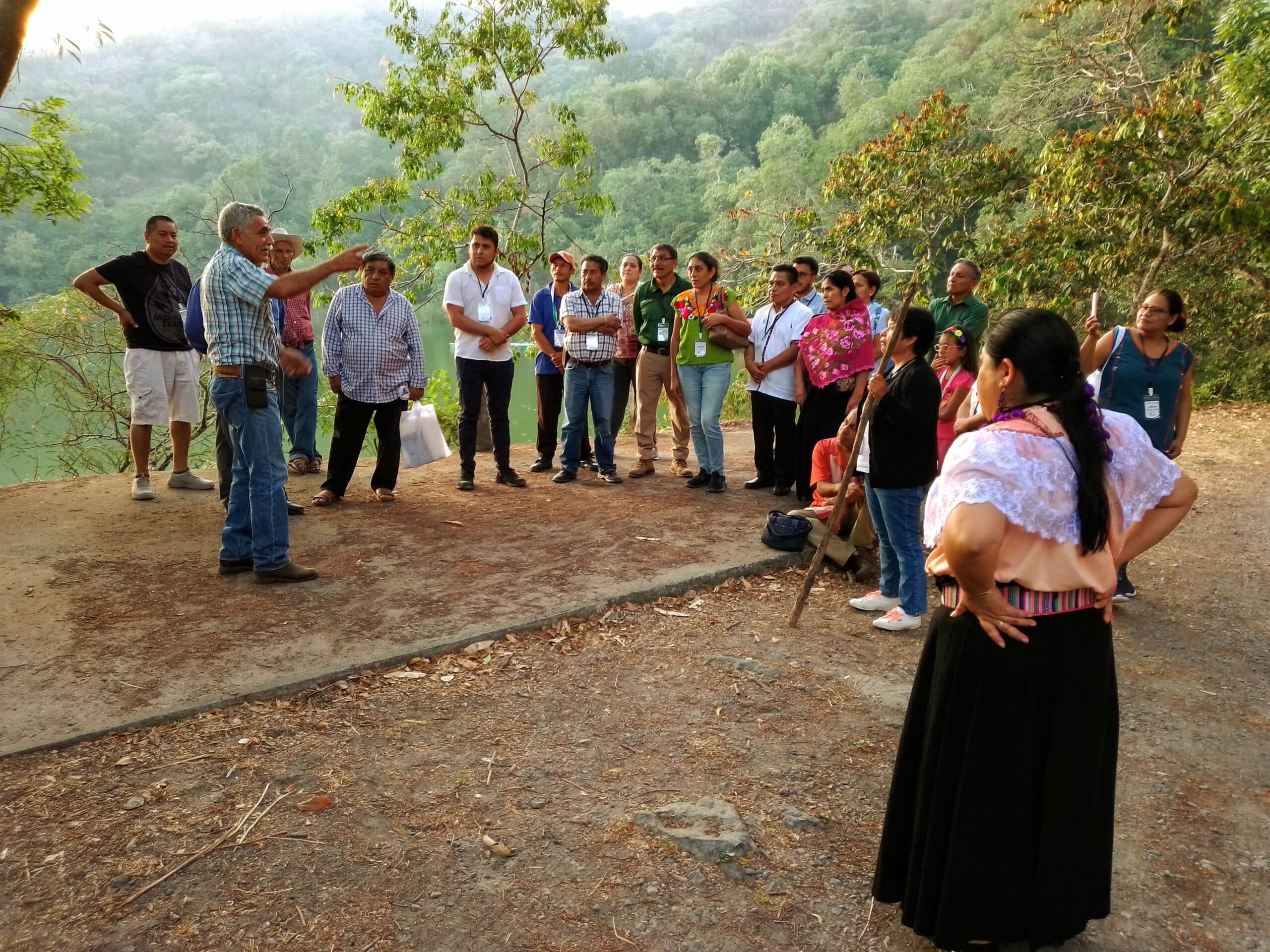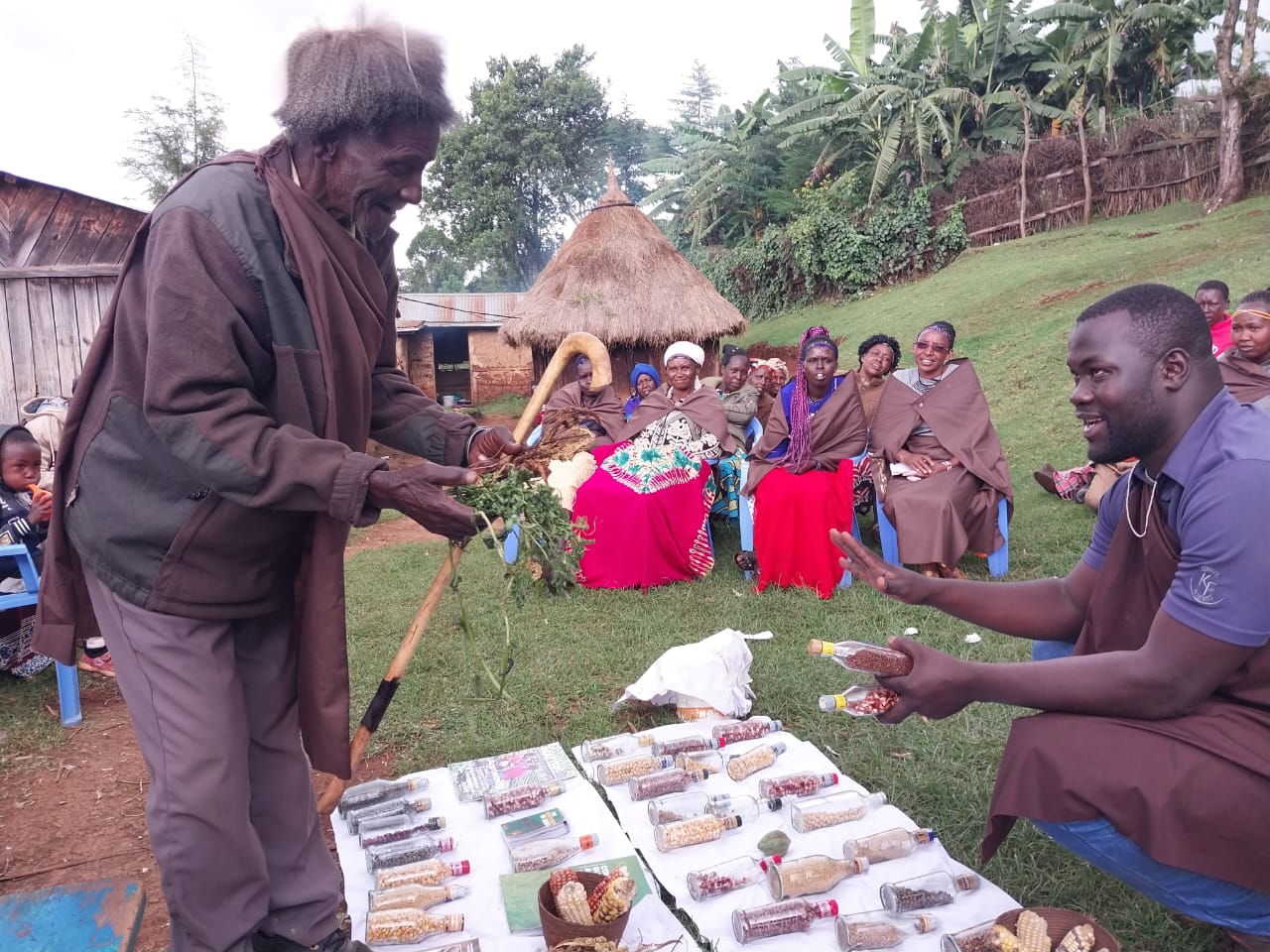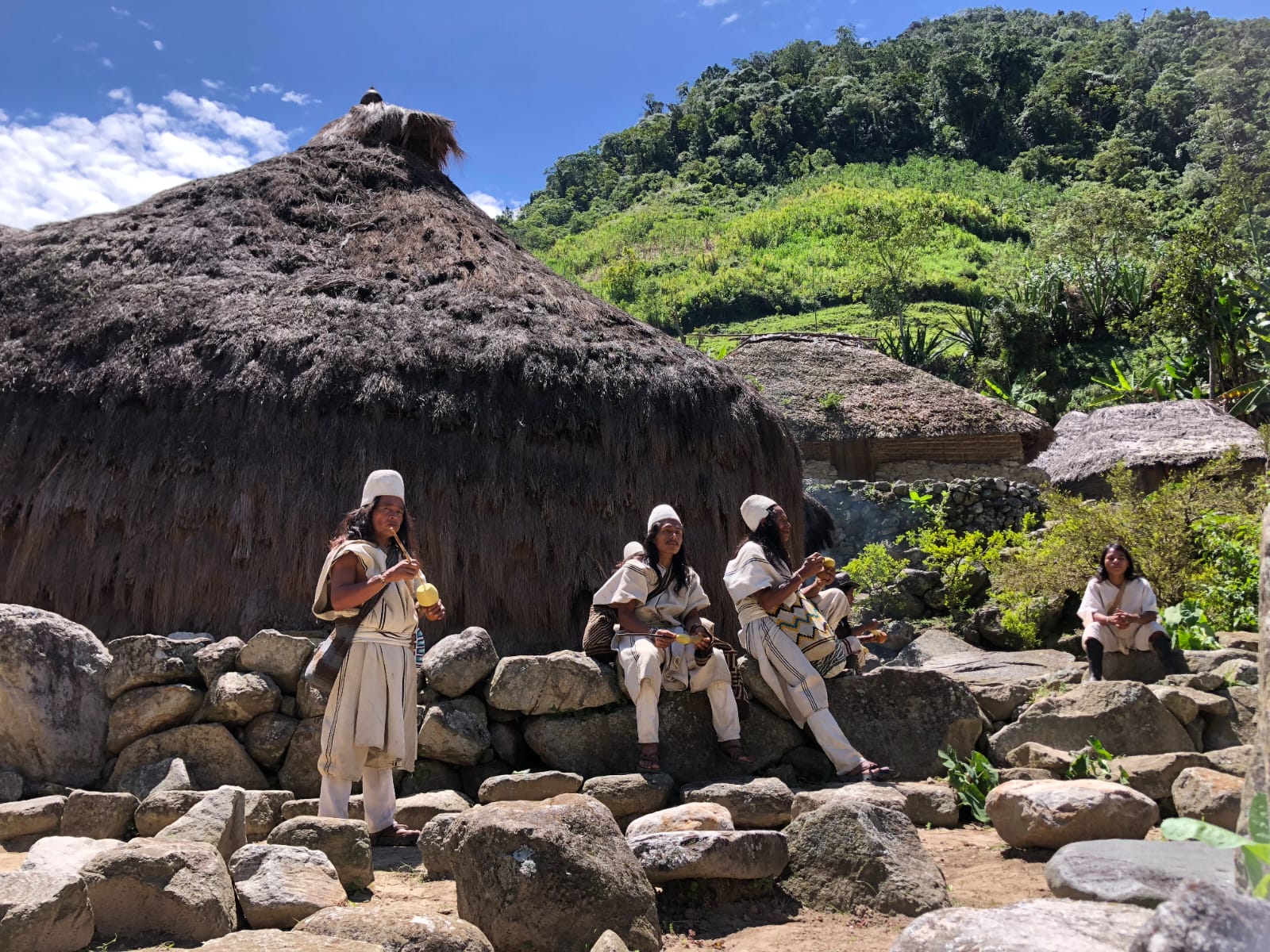While the UN climate negotiations of COP27 are under way in Sharm el-Sheikh, another notable event, the 41st session of the UN Human Rights Council’s Universal Periodic Review (UPR) is currently taking place in Geneva, Switzerland. Over this two-week session, 14 States have their human rights records examined.
|
|
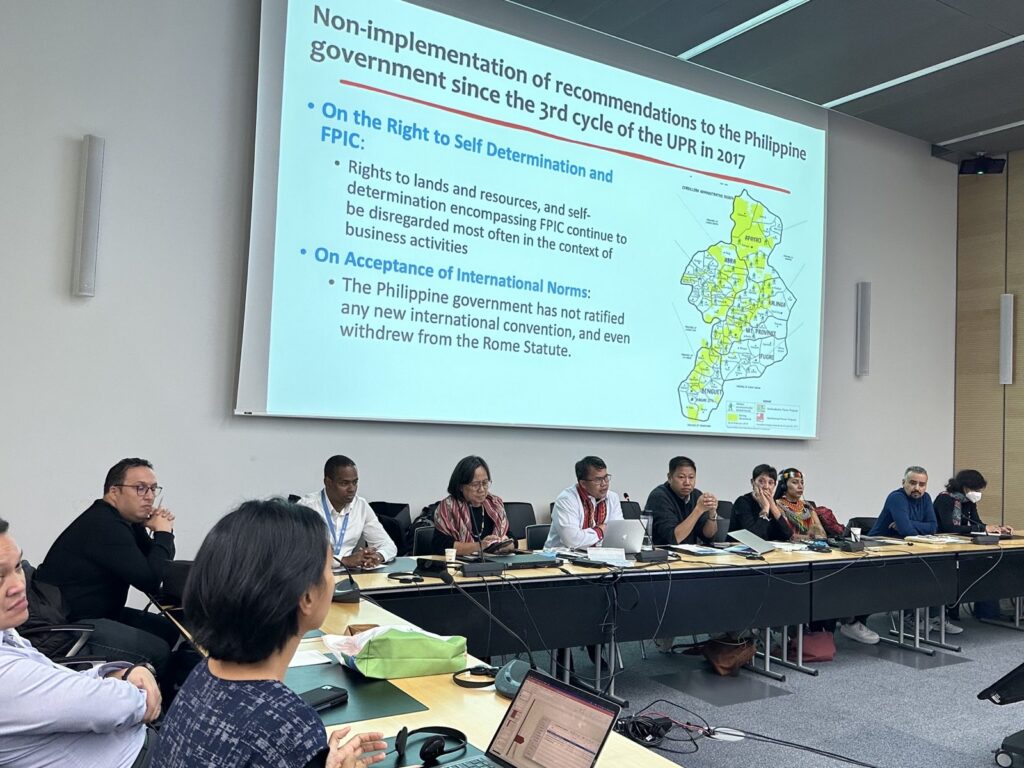
“The government, especially the National Task Force, continues to label our rights to land, territories, and free, prior and informed consent as ‘anti-development’ assertions. They brand Indigenous and Bangsamoro communities as ‘red and terrorist areas’, resulting in militarization, aerial strikes, and evacuation of communities. It persistently brands our leaders and organizations as terrorists. It also creates fake and false surrenders to support this ridiculous narrative. These lead to extrajudicial killings, trumped-up charges, threats, and harassment against members and leaders of national minority organizations.” – Beverly Longid, Igorot woman, Global Coordinator of IPMSDL
Below you can find a summary of the recommendations regarding human rights of Indigenous peoples that the Philippines received from fellow States in its review:
Take all necessary measures to protect the lives and rights of human rights defenders and journalists, and ensure that they can carry out their work safely, free from intimidation, harassment, red tagging, and other forms of violence. Ensure freedom of expression and media freedom. Global Witness has identified the Philippines as the third most dangerous country for human rights defenders globally.
Conduct in-depth, impartial, independent, transparent, and effective investigations of the deaths and human rights violations of human rights defenders and journalists. Take all necessary measures to prevent further extrajudicial killings, enforced disappearances or other human rights violations of defenders. Between 2016-2021, according to Panaghiusa, 126 Indigenous individuals lost their lives in extrajudicial killings, 227 were illegally arrested, 478 were illegally detained, 27 were tortured and 6 forcibly disappeared. Furthermore, 97,118 Indigenous people were forcibly evacuated from their territories.
Ensure full and meaningful participation of Indigenous peoples at all stages of development projects affecting them. Growing mining, dam construction, and agricultural plantations continuously violate Indigenous peoples’ rights to lands, self-determination, and FPIC.
Ratify the ILO Convention 169 on Indigenous and Tribal Peoples, and ensure that laws, policies, and programs aimed at protecting the rights of Indigenous peoples are effectively implemented.
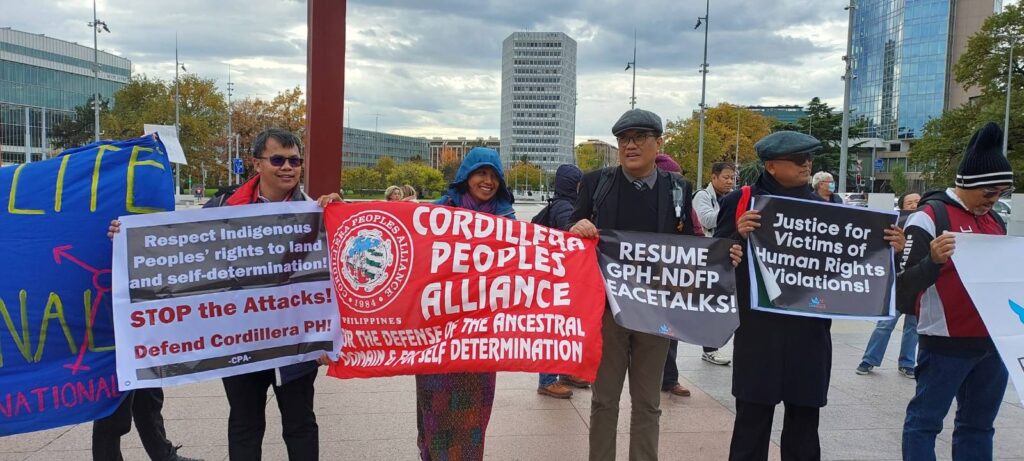
“We are here to challenge the UN system and represent ourselves, our community, our people, and the real situation on the ground. The Philippine government is not representing us. Instead, they are representing the interests of the imperialists, the plunderers of Indigenous territories.” – Windel Bolinget, Chairperson of the
Cordillera Peoples’ Alliance

